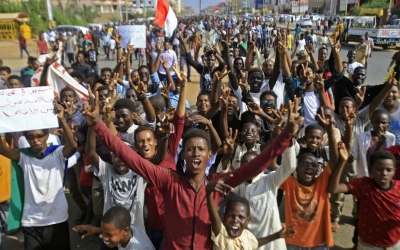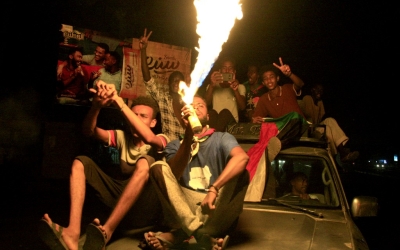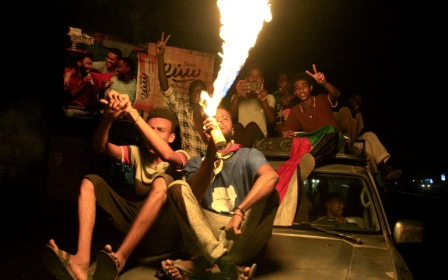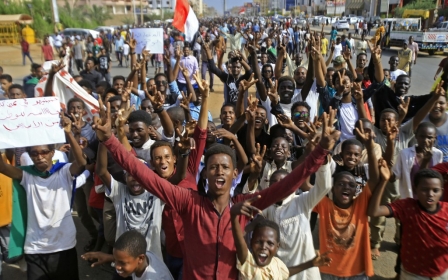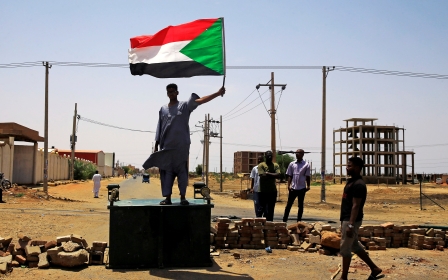Sudan celebrates political agreement even as many challenges lie ahead
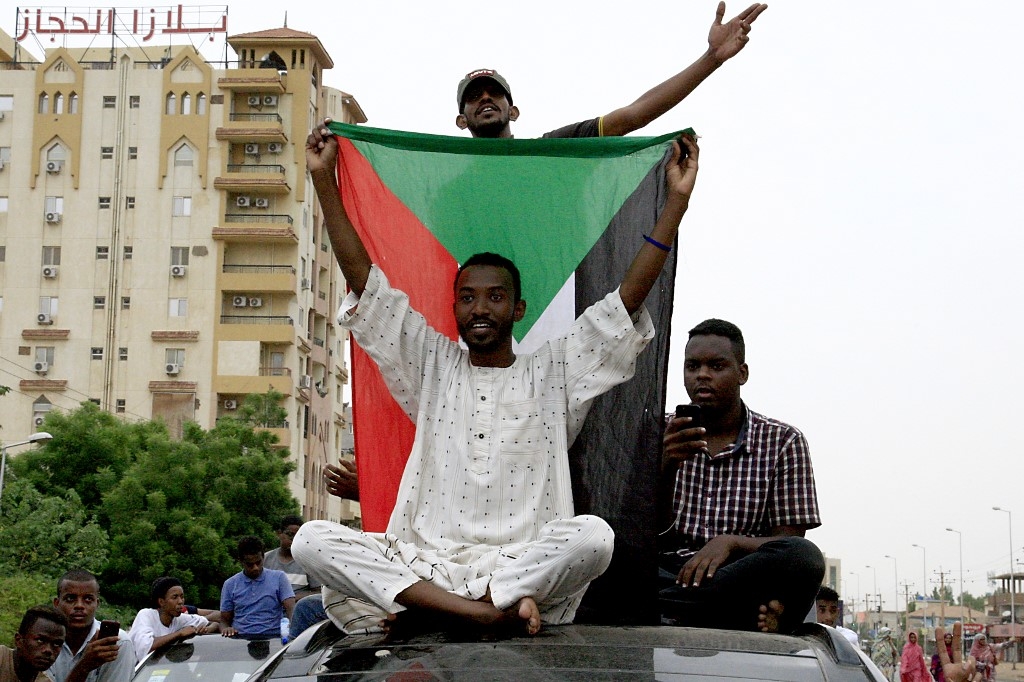
Celebrations spread throughout Sudan on Saturday as pro-democracy protesters thronged the streets of the capital Khartoum and other cities to mark the agreement that concluded long talks between the Transitional Military Council (TMC) and the opposition Forces of Freedom and Change (FFC).
The two sides confirmed that they had reached agreement on disputed issues and will sign a document they called a "constitutional declaration," paving the way to a new transitional government. The TMC took power following the overthrow of former president Omar al-Bashir in April.
Some protesters raised banners calling for civilian governmental authority and chanted slogans demanding accountability and justice. Others called for the arrest of Rapid Support Forces (RSF) that were involved in the slayings of protesters in different parts of the country.
Mutaz Siddig, whose cousin Abdul Salam Kisha was killed during the dispersal of a sit-in on 3 June in Khartoum, said that he welcomes the agreement, but wants justice to be implemented. "Any agreement that does not include the accountability of the perpetrators of the killings will not be accepted," he said.
Amani Awad Allah, a family member of a victim in last week's El-Obied massacre, when five children were killed and others wounded, said they want to see the killers of their children in prison and executed.
"We are not against peace and the solution of the crisis, but we also must have our rights," she told MEE over the phone.
African Union mediator Mohamed Hassan Lebatt told reporters in Khartoum on Saturday morning following overnight talks that the two sides had agreed on the constitutional declaration that is to organise the transitional period.
"The delegations of the TMC and FFC have settled the issue of the constitutional declaration, and that means the disputes have been resolved. The two sides have a meeting today to prepare for a ceremony that will be attended by some presidents of neighbouring countries,” Lebatt said, without specifying when the document is to be signed.
Leading FFC member Medani Abas Medani told MEE that the agreement is a landmark leading towards the victory of the Sudanese revolution, though many more steps will be required to reach the final goals. "A lot of things still need to be done in the path of our revolution," Medani said.
He confirmed that the FFC will follow up on the issue of accountability for those who killed protesters, adding that an independent committee would be appointed after the formation of a new Council of Ministers.
"When the civilian government has been formed, one of the main issues to be addressed is the accountability of those who killed the protesters, so we will form an independent committee to investigate all the killings and crimes committed against protesters," Medani said.
The TMC has admitted that RSF soldiers shot dead five schoolboys in Obied city last week and killed four protesters in Khartoum last Thursday.
Ibtisam Sanhori, a member of the FFC legal committee, said that the two sides had agreed on the majority of the disputed issues, including the formation of institutions of the transitional government.
She told MEE that the two sides had also agreed on representation in parliament, in which the FFC will control 67 percent of the 300 seats.
"The two sides have agreed on forming the Sovereignty Council, the Council of Ministers to be established by the FFC and the 67 percent representation in parliament.
"Parliament will have the right to appoint a general prosecutor and chief justice, and to make declarations of war and emergencies, which will strengthen the building of the parliamentary system in Sudan," she said.
She added that 11 commissions would be formed to work independently on issues of corruption and reformation of the civil service, as well as on elections, border disputes and land conflicts and planning, among others.
Middle East Eye delivers independent and unrivalled coverage and analysis of the Middle East, North Africa and beyond. To learn more about republishing this content and the associated fees, please fill out this form. More about MEE can be found here.


